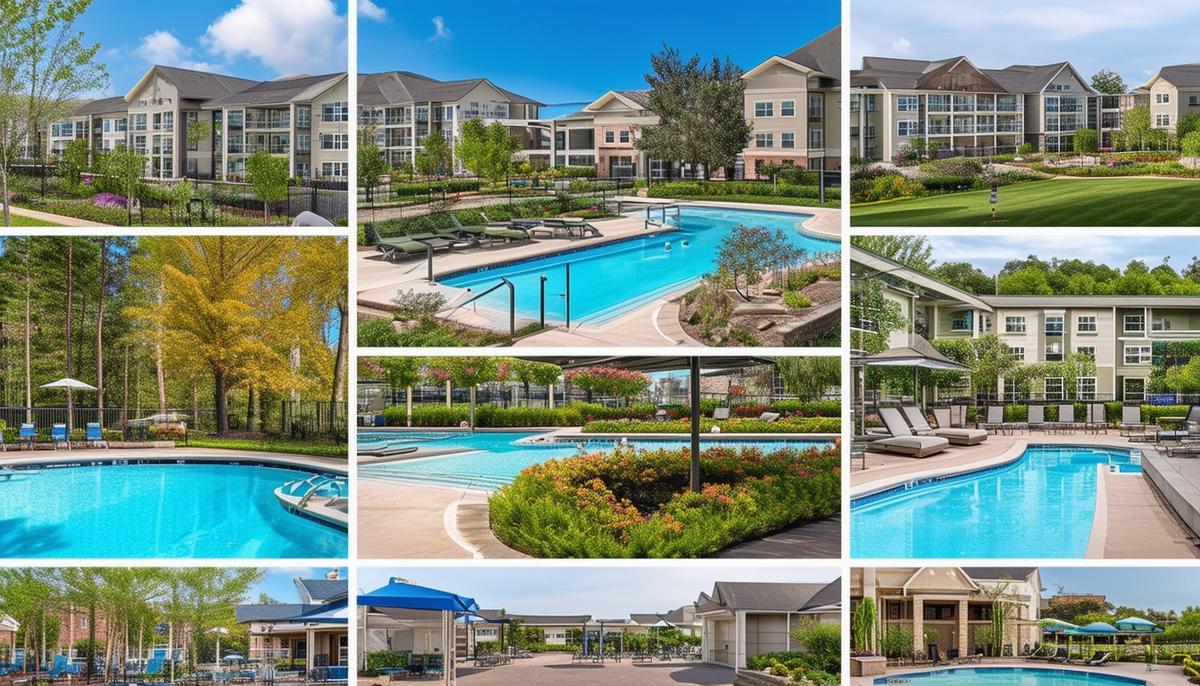Understanding the intricacies of HOA fees is crucial for anyone considering a new home. These fees can significantly impact your budget and overall financial planning. By grasping what these dues entail, you can make more informed decisions and avoid unexpected surprises down the road.
Understanding HOA Fees
HOA fees are an essential consideration when house hunting. They can affect everything from your budget to the loan you qualify for. Let's break down the basics.
What Are HOA Fees?
HOA fees are dues collected by a Homeowners Association to maintain your community and provide shared amenities. Think of them as a subscription to neighborhood upkeep and perks.
Monthly Cost Implications
These fees are additional, on top of your mortgage, property taxes, and insurance. They can range from a few dollars to hundreds more a month. Make sure to include them in your budget to avoid any surprises.
Services and Benefits
Common services include landscaping, security, and maintenance of shared amenities like pools, gyms, and clubhouses. These services ensure well-kept, coordinated spaces rather than a patchwork of unkempt areas.
| Service | Description |
|---|---|
| Landscaping | Keeping common areas lush and green |
| Security | Peace of mind with patrols or gatekeepers |
| Maintenance | From fixing potholes to cleaning the pool |
Impact on Mortgage Approval
Banks consider your overall debt-to-income ratio, including HOA fees. High fees might mean you qualify for a smaller loan, so factor them into your home-buying calculations.
Mandatory Nature
HOA fees are mandatory if you buy within an HOA community. They come with the territory and ignoring them isn't an option unless you're okay with fines or legal issues.
Fee Variations
Fees can vary widely depending on the community and its amenities. Expect higher fees in neighborhoods with premium features like golf courses or large pools. Always ask for a breakdown of what you're paying for.
| Community Type | Typical Fee |
|---|---|
| Luxury gated community | Higher fees for premium amenities |
| Standard suburb | Moderate fees for basic perks |
| Minimalist neighborhood | Lower fees covering essentials |
Long-term Financial Implications
HOA fees can increase over time. A well-run HOA maintains reasonable and predictable fees, while poorly managed ones might lead to unexpected hikes or assessments.
Rules and Restrictions
Living in an HOA community means agreeing to abide by its rules. This can include regulations on home modifications, pet ownership, and renting out your home. These rules protect home values and community aesthetics.
Special Assessments
Sometimes, HOAs levy special assessments for significant repairs or renovations. It's like having an emergency expense fund you never wanted, so be prepared for potential sudden fee hikes.
Resale Value
A well-maintained community often means healthier home values. Potential buyers appreciate knowing their prospective home is in a cared-for neighborhood. However, high fees or poor management can deter buyers, affecting your resale value.
Conflict Resolution
HOAs can mediate disputes and enforce community rules, potentially saving you from awkward confrontations with neighbors.
Joining an HOA means balancing the benefits against the costs. Consider what those fees do for your quality of life and home value, and make sure you're paying for amenities you'll actually use.
Financial Implications of HOA Fees
HOA fees, stacked on top of your mortgage, property taxes, and insurance, can significantly impact your monthly expenses. It's important to factor these into your budget when considering a home purchase.
Lenders take HOA fees into account when calculating your debt-to-income ratio (DTI). This ratio is crucial in determining your loan eligibility. If your HOA fees are high, it could push your DTI into risky territory, potentially reducing the loan amount you qualify for or even affecting your approval.
For example, if you're eyeing a home with a $1,000 monthly HOA fee, it could impact your loan eligibility more than you might expect. Lenders typically prefer your DTI to be below 43%, but the lower, the better.
Don't forget about special assessments – those unexpected fees for major repairs or improvements. These can be significant financial hits, so it's wise to keep some emergency funds on hand.
When house hunting, factor in all these costs early. HOA fees aren't just extra fluff; they're a financial reality that can sway your loan eligibility and monthly budget. Think of them as an uninvited but sometimes valuable guest at your financial party – they might bring benefits, but they'll definitely expect you to pay for their contribution.

Evaluating the Value of HOA Services
Let's examine what you're actually getting for those HOA fees. It's not just about maintaining sidewalks; it's about enhancing your quality of life and potentially boosting your property value.
Common HOA-maintained amenities include:
- Swimming pools: A community pool offers summer fun without the expense of maintaining your own.
- Gyms and fitness centers: Having a gym within walking distance can be convenient and cost-effective.
- Landscape and exterior maintenance: This keeps the entire community looking polished, potentially increasing property values.
- Security: Gated communities or neighborhood patrols can offer peace of mind.
- Clubhouses and community centers: These spaces can be great for hosting events or gatherings.
- Essential services: Trash removal, pest control, and sometimes utilities are included in some HOAs.
Remember, not all HOAs offer the same amenities. Some boast luxury features like golf courses, while others focus on basic necessities. The key is to assess what you'll actually use and whether the value added justifies the fees.
When evaluating HOA services, balance the tangible benefits with the price tag. Consider how these services enhance your lifestyle and potentially your home's resale value. A well-run HOA can turn your community into a haven of convenience and charm, but it's important to ensure you're getting good value for your monthly dues.

HOA Rules and Restrictions
Understanding HOA rules and restrictions is crucial to ensure they align with your lifestyle. These rules are designed to maintain community standards and property values, but they can sometimes feel restrictive.
Key areas often covered by HOA rules include:
- Property modifications: There may be guidelines on exterior changes, including paint colors, landscaping, and additions.
- Rental restrictions: Some HOAs limit short-term rentals or have policies on long-term leases.
- Pet ownership: Rules might limit the number, size, or breeds of pets allowed.
- Parking regulations: There could be restrictions on where and how long vehicles can be parked.
- Noise and nuisance policies: These aim to maintain a peaceful living environment.
While these rules help maintain community standards, they can feel limiting if you value complete freedom with your property. It's essential to read all HOA documents thoroughly before buying. Consider talking to current residents to understand how strictly rules are enforced.
Whether HOA rules are a deal-breaker or a minor inconvenience depends on your personal preferences. If you appreciate a well-maintained, uniform community and don't mind following guidelines, you might find the trade-offs worthwhile. However, if you prefer complete autonomy over your property, these restrictions could be challenging.
Balance your desire for freedom with the benefits of community standards to determine if an HOA-governed property is right for you.

In summary, while HOA fees might seem like an extra burden, they play a vital role in maintaining community standards and enhancing your living experience. Weighing the benefits against the costs will help you determine if an HOA community aligns with your lifestyle and financial goals.
- Community Associations Institute. National and State Statistical Review for 2020. 2020.
- Davis M, Kochera A. Homeowners Associations: An Overview for Consumers. AARP Public Policy Institute. 2012.
- Brinig MF, Steegmann RA. The Effect of Homeowners Associations on Housing Prices. Journal of Urban Economics. 2007;61(3):463-483.

